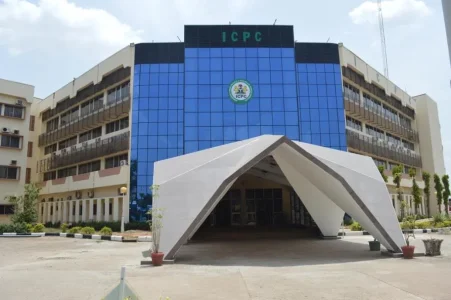View attachment 227626
Nigeria’s public debt rose by N24.33 trillion, reaching N121.67 trillion in Q1 2024. This increase, driven by new borrowing and Ways and Means securitisation, underscores the impact of economic reforms and exchange rate fluctuations. The DMO urges fiscal retrenchment and measures to attract foreign exchange.
The Debt Management Office (DMO) has reported a notable increase in Nigeria’s public debt, which has risen to N121.67 trillion by the end of the first quarter of 2024. This marks an increase of N24.33 trillion from N97.34 trillion recorded at the end of 2023. Patience Oniha, the Director-General of the DMO, attributed this rise to new borrowing and the securitisation of Ways and Means advances.
Oniha explained that a significant portion of this increase was due to the securitisation of N4.90 trillion of the N7.3 trillion Ways and Means advances that had been approved by the National Assembly. Additionally, new borrowing of N2.81 trillion, which was part of the N6.06 trillion allocated in the 2024 budget, also contributed to the growing debt.
In providing detailed insights into the country's debt profile, Oniha highlighted the impact of economic reforms on key financial indices, such as the dollar/naira exchange rate and interest rates, which have influenced the debt stock and servicing costs. She pointed out that while the total external debt stock remained fairly stable at $42.50 billion in Q4 2023 and $42.12 billion in Q1 2024, the naira value of this debt increased significantly due to exchange rate variations, from N38.22 trillion to N56.02 trillion.
Looking forward, Oniha emphasized the importance of fiscal discipline and the need for measures to attract foreign exchange inflows, which would help to strengthen Nigeria's external reserves and support the naira exchange rate. She assured that, when adjusted for foreign exchange impacts, the country's debt remains moderate and within manageable limits.
Nigeria’s public debt rose by N24.33 trillion, reaching N121.67 trillion in Q1 2024. This increase, driven by new borrowing and Ways and Means securitisation, underscores the impact of economic reforms and exchange rate fluctuations. The DMO urges fiscal retrenchment and measures to attract foreign exchange.
The Debt Management Office (DMO) has reported a notable increase in Nigeria’s public debt, which has risen to N121.67 trillion by the end of the first quarter of 2024. This marks an increase of N24.33 trillion from N97.34 trillion recorded at the end of 2023. Patience Oniha, the Director-General of the DMO, attributed this rise to new borrowing and the securitisation of Ways and Means advances.
Oniha explained that a significant portion of this increase was due to the securitisation of N4.90 trillion of the N7.3 trillion Ways and Means advances that had been approved by the National Assembly. Additionally, new borrowing of N2.81 trillion, which was part of the N6.06 trillion allocated in the 2024 budget, also contributed to the growing debt.
In providing detailed insights into the country's debt profile, Oniha highlighted the impact of economic reforms on key financial indices, such as the dollar/naira exchange rate and interest rates, which have influenced the debt stock and servicing costs. She pointed out that while the total external debt stock remained fairly stable at $42.50 billion in Q4 2023 and $42.12 billion in Q1 2024, the naira value of this debt increased significantly due to exchange rate variations, from N38.22 trillion to N56.02 trillion.
Looking forward, Oniha emphasized the importance of fiscal discipline and the need for measures to attract foreign exchange inflows, which would help to strengthen Nigeria's external reserves and support the naira exchange rate. She assured that, when adjusted for foreign exchange impacts, the country's debt remains moderate and within manageable limits.




